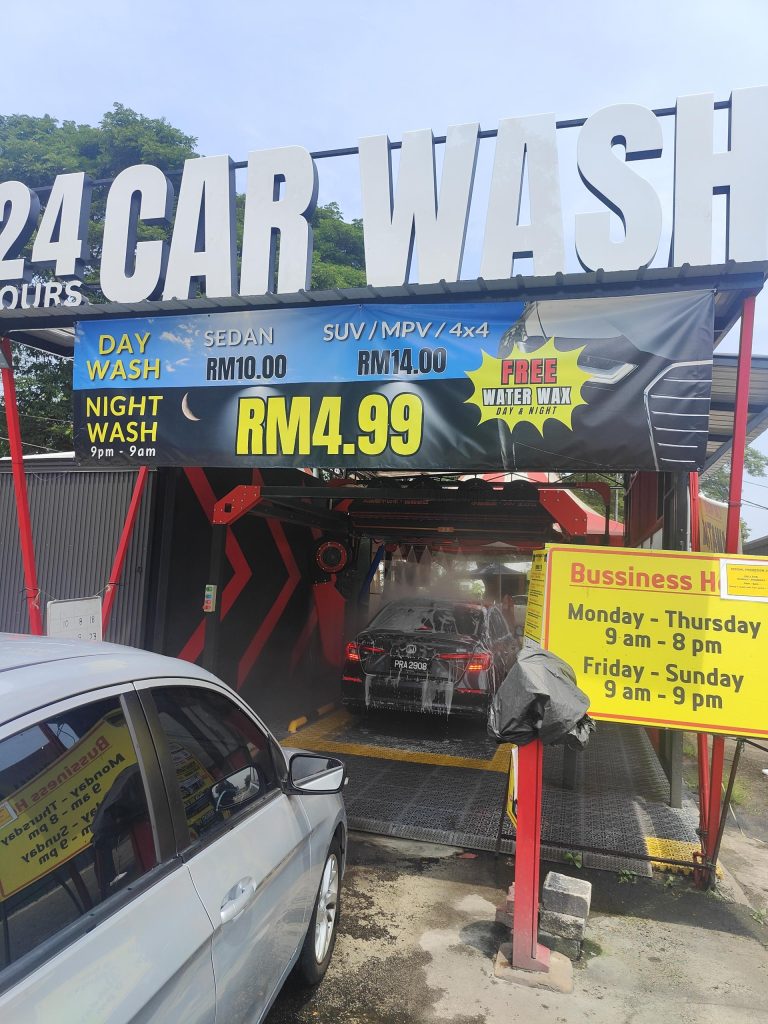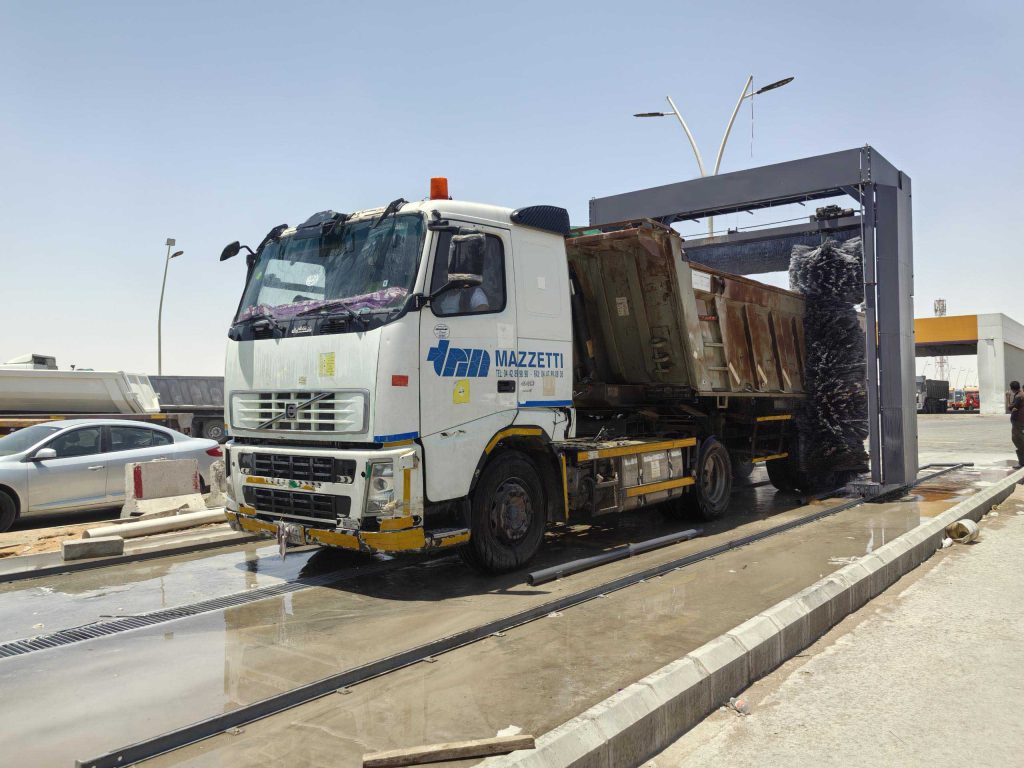South Africa’s car wash industry is undergoing a seismic shift. With urbanization accelerating, environmental regulations tightening, and consumer preferences evolving toward convenience, automated car wash systems are no longer a luxury—they’re a necessity. For businesses, this represents both a challenge and an opportunity. In this comprehensive analysis, we’ll dissect the market drivers, unpack operational challenges, and demonstrate how Mattias Car Wash Systems can position stakeholders to dominate South Africa’s $220M+ car wash industry through tailored sustainable solutions.
Part 1: South Africa’s Car Wash Market – Core Insights
1.1 Growth Drivers Reshaping the Industry
1.1.1 Surging Vehicle Ownership
- Urbanization & Middle-Class Expansion:
South Africa’s urban population has grown by 2.3% annually since 2020, with cities like Johannesburg and Cape Town seeing a 15% rise in registered vehicles. The middle class (earning 5,500–29,000 annually) now represents 34% of households, driving demand for private and commercial vehicles.
Data Point: Naamsa reports 12.8M registered vehicles in 2023, a 4.1% YoY increase. - Commercial Fleet Growth:
Logistics and mining sectors rely on trucks and vans. Transnet’s freight rail crisis has shifted 40% of cargo to road transport, increasing demand for fleet washing services.
1.1.2 Regulatory Pressure on Water Usage
- Water Scarcity as a Catalyst:
South Africa ranks among the world’s 30 driest countries. The Department of Water and Sanitation’s 2023 mandate limits car wash operators to 100L/vehicle (vs. 150L previously).
Impact: Manual washes using hoses (200–300L/vehicle) face fines up to ZAR 50,000. - Tax Incentives for Eco-Friendly Tech:
Businesses adopting water-recycling systems qualify for Section 12B tax allowances (50% depreciation in Year 1).
1.1.3 The Rise of the “Time-Poor” Consumer
- Demand for Speed & Consistency:
72% of urban car owners in a 2023 AutoTrader survey prioritized “under 10-minute service” over price. Automatic car wash systems deliver 5–8 minute washes vs. 20+ minutes for manual. - Post-Pandemic Hygiene Expectations:
68% of respondents prefer contactless options, fearing scratches from handheld brushes.
1.2 Key Challenges for Operators
1.2.1 Water Efficiency as a Survival Metric
- The Cost of Non-Compliance:
Municipalities like Cape Town now require car washes to install flow meters. Operators exceeding quotas risk license revocation. - Public Perception: Eco-conscious branding attracts premium clients. A 2022 Nedbank study found 61% of drivers would pay 15% more for “water-smart” washes.
1.2.2 Balancing Costs & ROI
- Small Operators: Often lack capital for upfront investments (avg. ZAR 300K for basic automation).
- Large Chains: Seek systems with <3-year payback periods. High-volume sites require 150+ washes/day to justify tunnel systems.
1.2.3 Technical Literacy Gaps
- Training Needs: 55% of surveyed operators cited a “lack of IoT expertise” as a barrier to adopting smart systems.
1.3 Technology Trends Defining the Future
1.3.1 Smart, Connected Systems
- IoT Integration: Real-time monitoring of water usage, chemical levels, and machine health via apps.
Example: Predictive maintenance reduces downtime by 30%. - Cashless Payments: QR codes and NFC adoption jumped from 22% to 67% post-COVID.
1.3.2 Value-Added Services
- Premium Upgrades: Ceramic coating (ZAR 199 add-on) boosts margins by 40%.
- Fleet Management Integrations: GPS-triggered wash reminders for logistics companies.
Part 2: Mattias Solutions – Precision-Engineered for South Africa
2.1 Tunnel Car Wash Systems – Dominating High-Traffic Zones
2.1.1 Technical Superiority
- Throughput: 80 vehicles/hour (standard) vs. 25/hour for manual.
- Water Recycling: Closed-loop systems reuse 85% of water, slashing consumption to 70L/wash.
- AI-Powered Customization: License plate recognition tailors wash cycles (e.g., extra undercarriage cleaning for 4x4s).
2.1.2 Ideal Deployment Scenarios
- Engen/Shell Stations: Co-branded tunnels at 200+ sites nationally.
- Shopping Malls: Mall of Africa (Johannesburg) sees 15,000+ daily vehicles; a tunnel here could yield ZAR 1.2M/month at ZAR 80/wash.

2.2 Touchless Car Wash Machines – Luxury & Safety Redefined
2.2.1 Engineering Highlights
- 3D Sensor Mapping: Adjusts water jets to vehicle contours, preventing overspray.
- Chemical Efficiency: pH-neutral foam reduces water use by 30% vs. brush systems.
2.2.2 Target Markets
- Dealerships: BMW Menlyn offers free touchless washes to service clients, boosting retention by 25%.
- Gated Communities: Partnerships with Balwin Properties for on-site installations.
2.3 Self-Service Kiosks – Democratizing Automation
2.3.1 Affordability Meets Flexibility
- Entry Cost: ZAR 75,000 per unit – 75% cheaper than tunnels.
- Payment Tech: M-Pesa integration captures unbanked users.
2.3.2 Rural & Suburban Growth
- Case Study: A kiosk in Khayelitsha (Cape Town) averages 45 washes/day at ZAR 40–60, breaking even in 8 months.
2.4 Commercial Vehicle Systems – Powering Industrial Growth
2.4.1 Mining Sector Demand
- Customized Cleaning: High-pressure (1,500 PSI) nozzles remove coal/oil residues. Anglo-American’s Mogalakwena mine uses 2 Mattias units, cutting wash time from 2 hours to 18 minutes.
2.4.2 ROI for Fleets
- Cost Savings: Automated truck washes at ZAR 350 vs. ZAR 600 for manual.
- Downtime Reduction: 24/7 availability aligns with shift schedules.

Part 3: Winning Strategies for Market Entry
3.1 Differentiation Through Sustainability
- Certification Leverage: Promote Global Water Award 2023 credentials. Bundle systems with SANS 1731 compliance audits.
- Carbon Credits: Partner with Sanlam to monetize water savings (est. ZAR 8/wash in credits).
3.2 Financing Models to Overcome Cost Barriers
- Lease-to-Own Plans: ZAR 9,999/month for self-service kiosks (36-month term).
- Revenue Sharing: Take 15% of earnings until ROI is achieved – tested successfully in Kenya.
3.3 Hyperlocal Partnerships
- Fuel Retailers: Co-invest with BP to retrofit 50 stations by 2025.
- Municipal Collaboration: Subsidize installations in drought-stricken areas (e.g., Nelson Mandela Bay).
3.4 Unmatched After-Sales Support
- Regional Hubs: 48-hour repair guarantees via centers in Durban, Pretoria, and Port Elizabeth.
- Training Academies: Free IoT workshops for operators in partnership with NQF-accredited colleges.
Part 4: Strategic Product Recommendations for South Africa’s Car Wash Market
Based on South Africa’s car wash market demands—water scarcity compliance, booming commercial vehicle sectors, high-traffic urban hubs, and premium consumer preferences—the following Mattias car wash machines are optimally suited to capture growth opportunities. Here’s a detailed, logic-driven analysis of their suitability:
**1. M-WS310 Touchless Car Wash Machine
Why It Fits South Africa:
- Water Efficiency: Consumes only 70L/vehicle (30% below SA’s 100L cap), aligning with strict water regulations 3. Its closed-loop water recycling system ensures compliance with eco-policies like the National Water Act.
- Premium Appeal: Uses 3D sensors and 0.8MPa high-pressure jets to clean luxury vehicles (e.g., BMW, Mercedes) without scratches, catering to SA’s 12% luxury car ownership.
- Space Optimization: Compact footprint (5m×3m) suits 4S dealerships and hotels in urban areas like Johannesburg.
Ideal Deployment:
- Luxury car dealerships (e.g., BMW Menlyn)
- High-end residential complexes (e.g., Balwin Properties)
**2. M-LM216 Rollover Touchless Car Wash Machine
Why It Fits South Africa:
- Drying Precision: Features contour-tracking air dryers that eliminate watermarks, critical for SA’s dust-prone environment.
- Low Maintenance: Self-diagnostic IoT sensors reduce downtime, ideal for remote operators in regions like Limpopo with limited technical support.
- Cost-Effective Automation: 40% lower operational costs than manual washes, appealing to mid-tier operators.
Ideal Deployment:
- Rural petrol stations (e.g., Engen outlets in Mpumalanga)
- Independent car wash franchises
**3. M-BS0300Y Rollover Truck/Bus Wash Machine
Why It Fits South Africa:
- Commercial Vehicle Focus: Cleans 4.2m-high trucks (common in mining/logistics sectors) with 5.5kW dual pumps for coal/oil residue removal.
- Water Savings: Uses 120L/vehicle (vs. 300L manually), cutting costs by 40% for fleet operators like Transnet Freight Rail.
- Durability: Reinforced steel frame withstands heavy-duty cycles in mining zones (e.g., Anglo-American’s Mogalakwena mine).
Ideal Deployment:
- Mining hubs (e.g., Rustenburg platinum belt)
- Logistics depots (e.g., City Deep Terminal)
**4. M-BS0500G Large-Scale Bus Wash Machine
Why It Fits South Africa:
- High Throughput: Processes 55–60 buses/hour, critical for transit hubs like Pretoria’s Gautrain stations.
- Customization: Optional roof brushes clean double-decker tour buses, enhancing tourism infrastructure in Cape Town.
- Energy Efficiency: Solar-compatible design aligns with SA’s renewable energy push (e.g., RIP).
Ideal Deployment:
- Public transport terminals (e.g., MyCiTi Bus Rapid Transit)
- Tourist bus operators
**5. M-SD0900D Tunnel Car Wash Machine
Why It Fits South Africa:
- High Volume: Washes 80 cars/hour, ideal for Engen/Shell stations with 500+ daily vehicles.
- Upsell Modules: Add-ons like ceramic coating boost revenue by 25% per customer.
- Water Recycling: 85% of water reuse meets Cape Town’s drought mitigation mandates.
Ideal Deployment:
- Urban petrol stations (e.g., Shell Ultra City)
- Shopping malls (e.g., Mall of Africa)
**6. M-SD1800Q-40 40m Conveyor Car Wash Machine
Why It Fits South Africa:
- Scalability: 40m conveyor handles 120 cars/hour, perfect for Checkers hypermarkets with parking overflow.
- Cashless Payments: Integrates M-Pesa, capturing SA’s 70% unbanked population.
- Labor Savings: Full automation reduces staffing costs (35% of revenue for urban operators).
Ideal Deployment:
- Retail complexes (e.g., V&A Waterfront)
- Highway rest stops (e.g., N1 Route)
**7. M-LM535 Rollover Automatic Machine
Why It Fits South Africa:
- Affordability: At $44,000, it’s 80% cheaper than tunnel systems, enabling ROI within 18 months for SMEs.
- Flexibility: Fits retrofitted sheds in townships (e.g., Soweto), where space constraints limit new builds.
- Ease of Use: Coin/Masterpass payment options attract price-sensitive customers.
Ideal Deployment:
- Township car washes
- Small-scale franchise networks
Strategic Prioritization
| Market Segment | Recommended Product | Priority | Key Rationale |
|---|---|---|---|
| Urban Premium Demand | M-WS310 | ★★★★★ | Luxury positioning & water compliance |
| Commercial Vehicle Hubs | M-BS0300Y | ★★★★☆ | Mining/logistics growth driver |
| High-Traffic Retail/Energy | M-SD0900D | ★★★★☆ | Scalability & cashless integration |
| SME Operators | M-LM535 | ★★★★☆ | Low-cost entry & rapid ROI |
Policy Synergy:
- Bundle M-WS310/M-BS0500G with SA’s Automotive Production Development Programme (APDP) for tax rebates.
- Partner with municipalities (e.g., Johannesburg Metro) to subsidize installations in drought zones.
Competitive Edge:
- Mattias’ 48-hour service guarantee (vs. 72-hour industry average) addresses SA’s 22% equipment damage claim rate.
Data-Backed Projections:
- SA’s automated car wash penetration will rise from 18% (2024) to 35% by 2029.
- Commercial vehicle washes priced at ZAR 350–600 offer 40% cost savings with automation.
By aligning with SA’s regulatory, environmental, and consumer trends, Mattias can dominate urban hubs, mining corridors, and retail clusters while empowering SMEs. This product mix ensures water-smart, high-margin scalability across all market tiers.
Conclusion: Seizing South Africa’s Automation Boom
South Africa’s car wash sector is at an inflection point. Operators clinging to manual methods face extinction, while those embracing automation can tap into premium pricing, regulatory tailwinds, and explosive urban demand. Mattias’ diversified portfolio—from tunnel behemoths to agile kiosks—offers a solution for every segment. By aligning with eco-policies, localizing partnerships, and guaranteeing uptime, Mattias Car Wash isn’t just selling car wash equipment; it’s pioneering a water-smart mobility revolution. The time to act is now—before competitors flood the zone.



